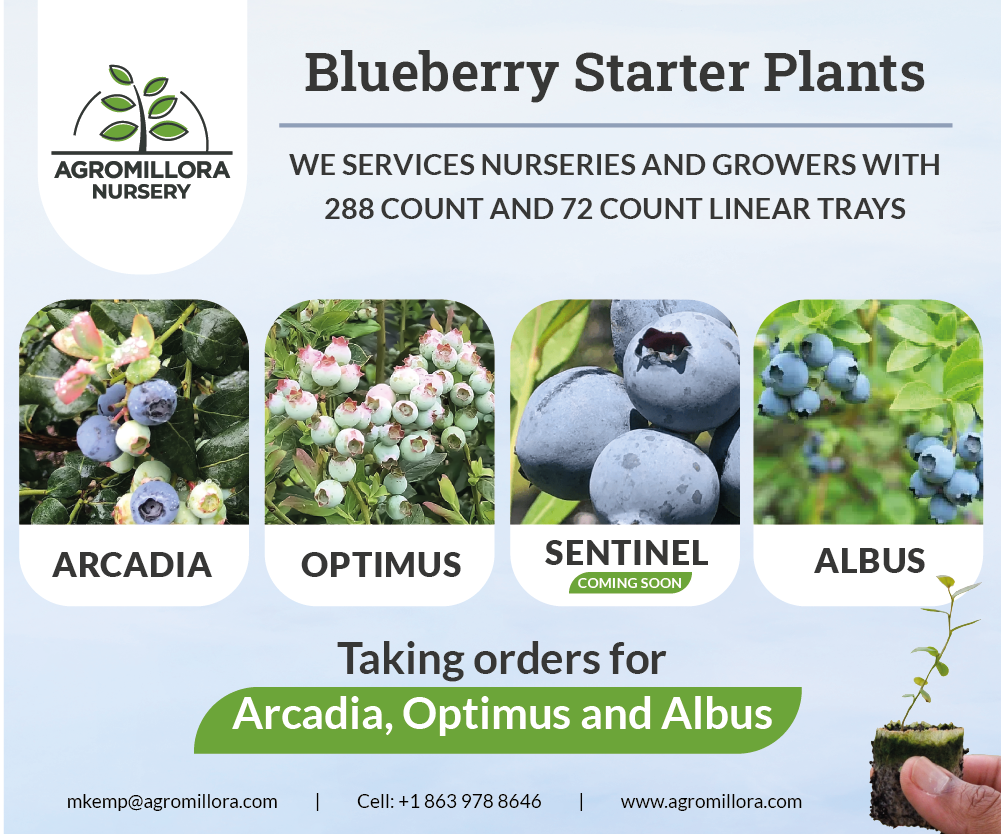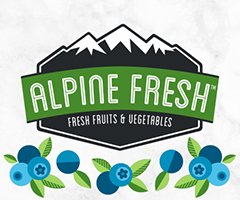The more talent Patricio Muñoz can recruit to his lab, the quicker he can get new varieties out to you, and he just got a powerful magnet to attract that talent.
In August, the UF/IFASCollege of Agricultural and Life Sciences launched a new plant breeding Ph.D. program. Muñoz has one of the first seven students.
It’s a double win for the industry. Estefania Tavares Flores will help Muñoz help you for the next four years, and she hopes to then be a professional blueberry breeder herself.
Tavares arrives with a background in the gene-editing tool CRISPR and other biotechnology skills. She’ll put these to work helping Muñoz explore how to boost blueberries’ antioxidant levels.
Muñoz in his lab and UF/IFAS with our larger plant breeding program believe that we can get the best return on investment by building on existing strengths.
When it comes to the blueberry, one of its greatest strengths in the market is its superfood status. Tavares and Muñoz hope breeding an even more nutritious berry will increase consumer demand among the health-conscious. You don’t need a Ph.D. in economics to know what an increase in demand can do for price and profit.
No other program we know of has focused on breeding for antioxidants. Tavares’ proficiency in modern breeding tools and Muñoz’s guidance will allow her to engage in this search while simultaneously incorporating traits such as size, fruit firmness, resilience to climate change, disease resistance and more.
I’d argue that UF/IFAS already has the top plant breeding program in the nation. We can say for sure that we have few peers, and adding the Ph.D. program gives us that much more of an edge. UC Davis, for example, does not offer a plant breeding Ph.D., nor does Penn State.
Our edge is your edge. Better breeding will help the blueberry industry and other Florida commodities keep globally competitive.
Our breeders have long had Ph.D. students, of course, in horticultural sciences, agronomy and other disciplines. The new plant breeding curriculum offers specialized instruction and research in creating cultivars. Employers sifting through resumes look specifically for degrees in plant breeding.
So do students looking for degree programs. Tavares wants the plant breeding designation on her diploma and chose UF because she can now get that here.
Muñoz chose Tavares for a reason beyond her technical skills. He sees in Tavares a passion for the profession. Tavares sees the very future of agriculture as dependent upon plant breeders, that she will be on the front lines of helping producers adapt to changing conditions in their fields for decades to come.
She’ll start building relationships with the industry now. Muñoz expects that she’ll sample varieties in trials on commercial farms and that she’ll present preliminary results from her work at meetings of the Florida Blueberry Growers Association.
A new cultivar is always years in the making. So is a new cultivar creator, the berry breeder. The new UF/IFAS plant breeding program has the potential to accelerate the timelines for both and to improve the results—better breeds, and better breeders.
J. Scott Angle is the University of Florida’s Vice President for Agriculture and Natural Resources and leader of the UF Institute of Food and Agricultural Sciences (UF/IFAS).






